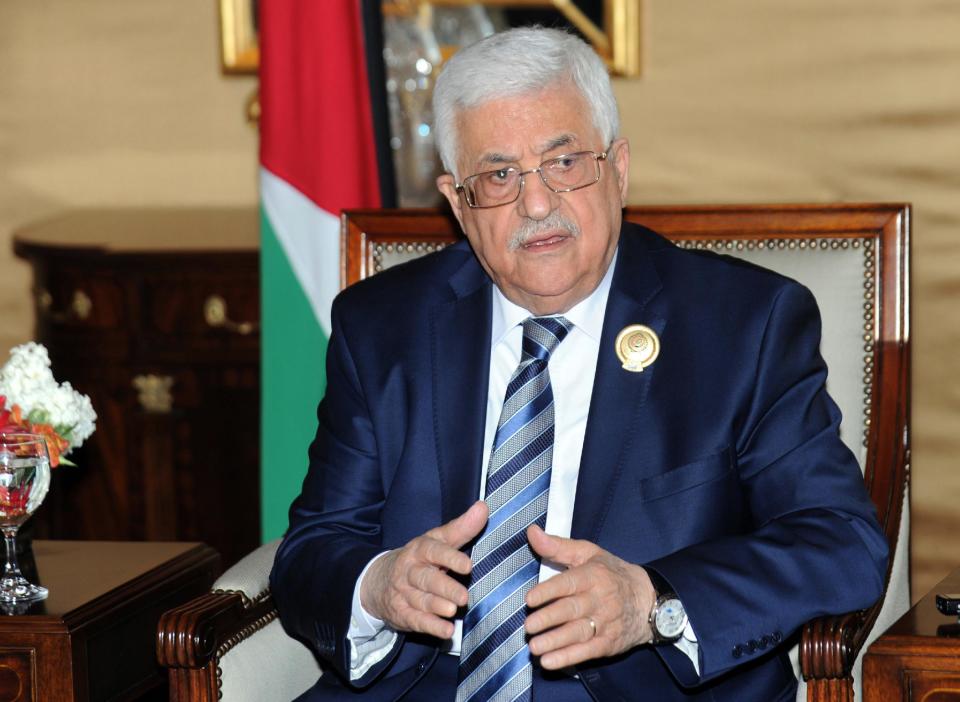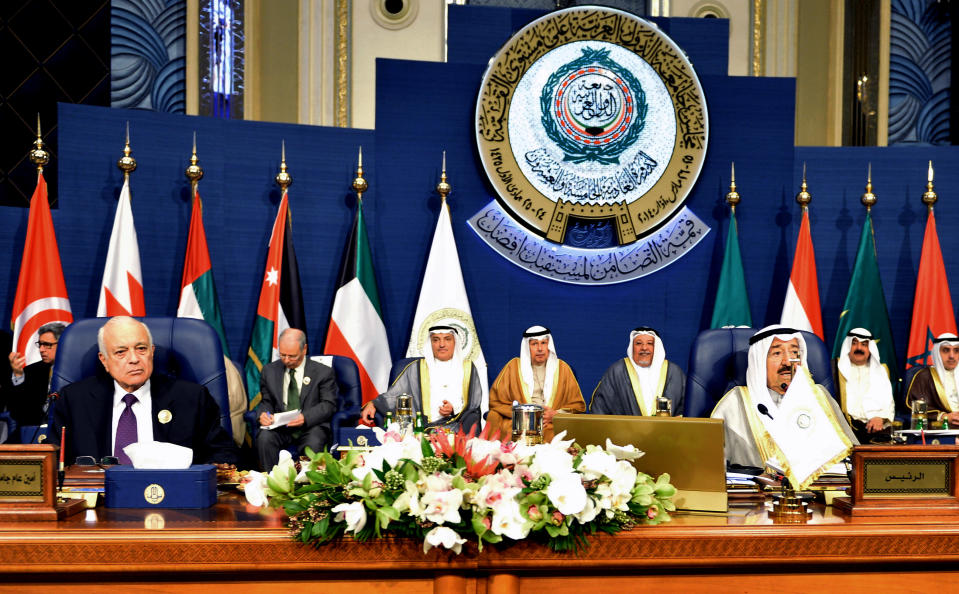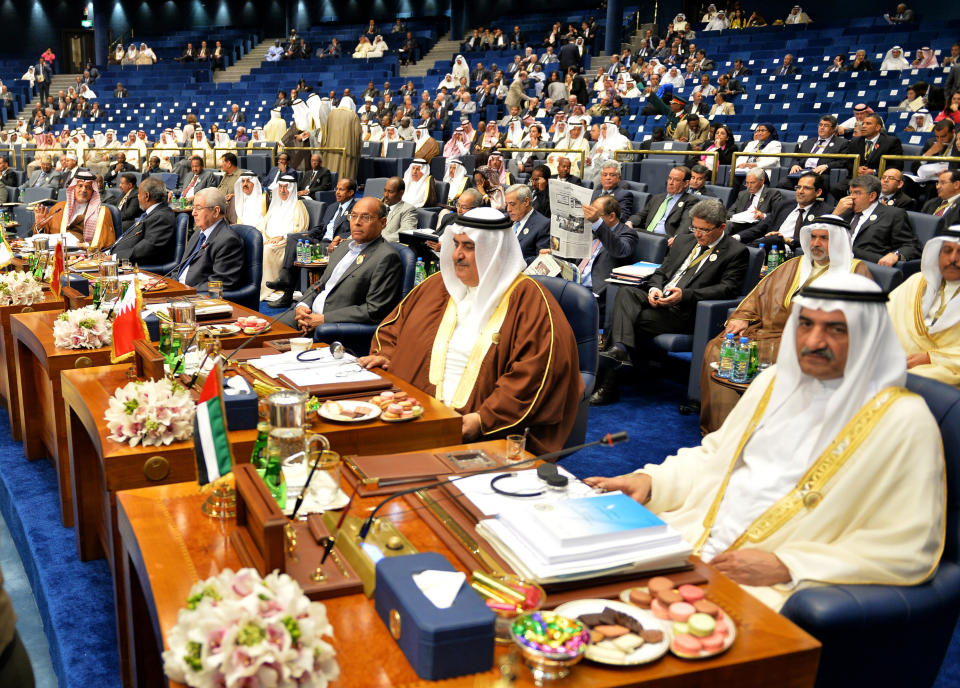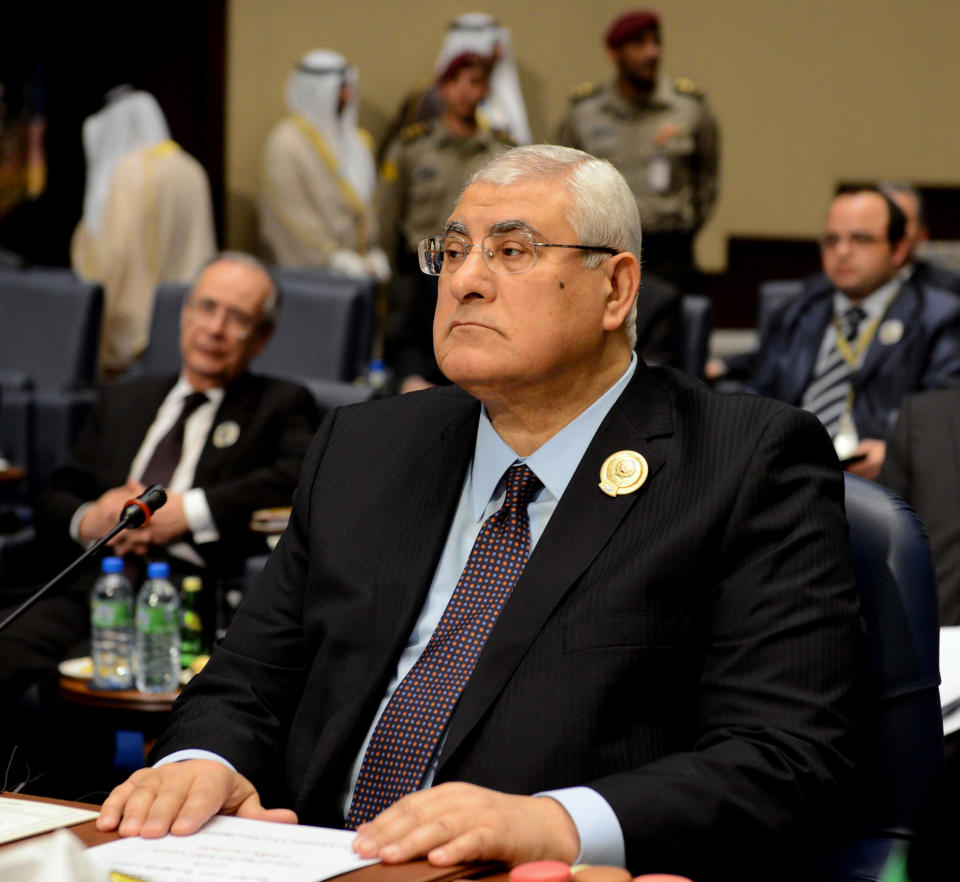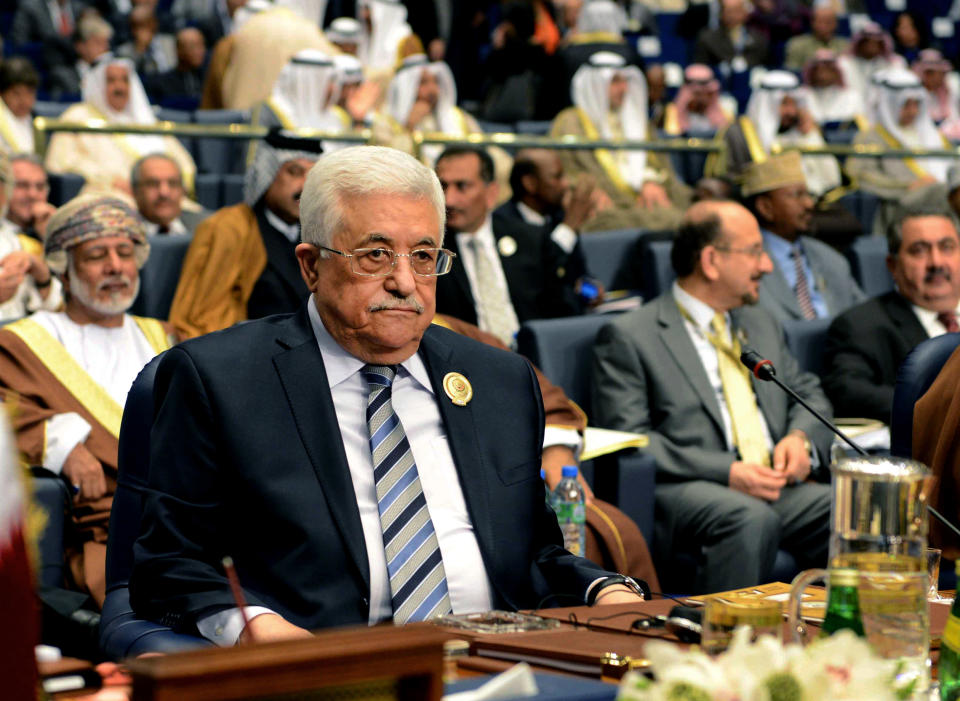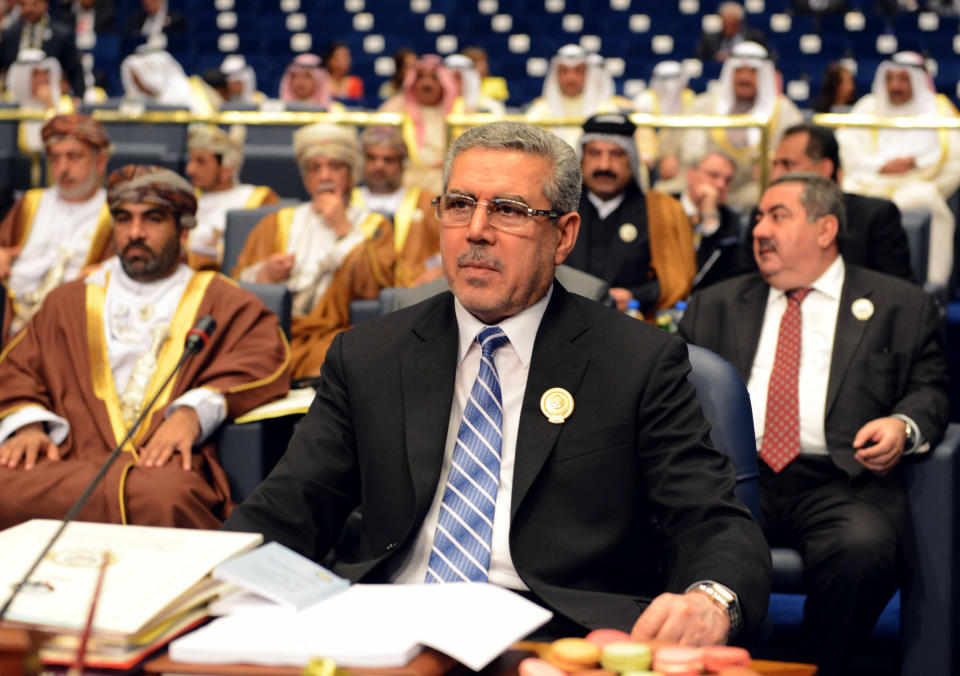Arab summit lays bare serious cracks on Syria
KUWAIT CITY (AP) — An Arab summit that ended Wednesday exposed cracks in what was once solid Arab support for Syrian rebels, with Saudi Arabia and Qatar divided over which factions to back and Syria's neighbors increasingly expressing fatigue with the flood of refugees from the country's civil war.
The Syrian opposition used the two-day gathering in Kuwait to plead for its allies to unite in helping it at a time when Assad's forces have made gains on the ground and prospects for a negotiated settlement of the three-year-conflict have become remote.
In an emotional address, Syrian opposition leader Ahmad al-Jarba appealed for heavier weapons to be supplied to the rebels, asking Arab leaders to pressure the international community to do so.
"I don't ask you for a declaration of war, but I ask you to support our cause and find a solution," he said in his speech to the assembly Tuesday.
Alluding to the differences among Arab nations over the level and kind of support they should offer to the rebels, he said: "Disagreements between brothers fade when homes are violated. Your homes, dignity and lives in Syria are violated."
The cracks are mostly rooted in long simmering tensions between Saudi Arabia and Qatar, a tiny but super-rich Gulf state.
Saudi Arabia and its allies accuse Qatar of sending weapons to Islamic militant fighters who have become increasingly powerful within Syria's rebellion, clashing with more moderate rebel factions.
It is not clear how the Saudi-Qatari dispute has impacted on the flow of weapons to the Syrian rebels from the two nations.
But Riyadh and Doha are now running separate arms pipelines to the rebels, according to a well-placed Gulf official who spoke on condition of anonymity because he was not authorized to speak to the media. Saudi Arabia's supplies go to the Free Syrian Army, the loose umbrella group of rebel factions backed by the West, the official said.
The official said Qatar had ignored repeated warnings from Saudi Arabia that it was arming the "wrong people" in the conflict.
Qatar has not spoken publicly about its aid to the rebels.
Earlier this month, when Saudi Arabia, the United Arab Emirates and Bahrain withdrew their ambassadors from Doha in anger over the Syrian issue and other disputes, Qatari Foreign Minister Khalid bin Mohammed al-Attiyah said his country will "follow a path of its own" and that the independence of its "foreign policy is simply non-negotiable."
Saudi Arabia has grown increasingly concerned over the strength of militant groups linked to or inspired by al-Qaida fighting in Syria, many of them non-Syrian jihadis. The militants' strength has made the United States and other Western countries wary of arming the rebels, and Saudi Arabia also fears blowback from jihadi fighters returning from the Syria war.
The withdrawal of the Gulf ambassadors from Qatar turned the longtime tensions into a full-fledged diplomatic dispute. It marked the emergence of an anti-Qatar axis, including the three Gulf nations and Egypt, aimed at stemming Doha's attempts to spread its influence around the region. Beyond the Syria issue, the countries are angered by Qatar's support of the Muslim Brotherhood and Shiite rebels in Yemen.
"The regression of the Arab role (on Syria) will lead to an expanded Iranian role and that is not in the interest of the Arabs," Syrian opposition spokesman, Louay Safi, told reporters on the sidelines of the Kuwait summit.
Shiite and mainly Persian Iran is the main backer of the Assad regime, whose core support comes largely from followers of the Alawite sect, an offshoot of the Shiite faith that the Syrian leader himself subscribes to.
The disunity among Arab nations over support for Syria's rebel also comes at a time when some of Syria's neighbors appear to be fatigued by the fallout from a conflict that has claimed at least 140,000 people and displaced millions.
Lebanese president Michel Suleiman said the number of Syrians who have fled into his country equal nearly a third of its population of 4.5 million people. He said the influx poses an "existential threat" to Lebanon's national unity.
He warned that his nation would look into what he called legitimate ways to stop the flow of more Syrians.
Jordan's King Abdullah also complained that nations hosting Syrian refugees, like his own, needed international help to deal with them. At least 1.2 million Syrians have taken refuge in Jordan since the Syrian conflict began in March 2011.
The wariness of some Arab nations over the Syrian conflict is matched by the opposition's own problems.
The fissures in Arab support for the Syrian rebels first surfaced in Kuwait when the main opposition group — the Syrian National Coalition — was not allowed to take Syria's seat at the summit, as it did in last year's summit in Doha.
Safi, the opposition spokesman, said several Arab nations had threatened to withdraw from the summit if Syria's seat was given to the coalition. He did not name them, but added that Sudan, Lebanon and Algeria were among those who did not want the coalition to take the seat.
Safi also bemoaned that Egypt's stand on the Syrian conflict has "changed," although Cairo remained generally supportive of the Syrian revolution.
He did not elaborate. Since the Egyptian military's ouster of Islamist President Mohammed Morsi in July, the country has toned down the zealous Morsi-era support for the rebellion. Morsi's administration allowed militants to travel to Syria to join jihadi groups there.
____
Associated Press writer Barbara Surk contributed to this report from Beirut.

 Yahoo News
Yahoo News 